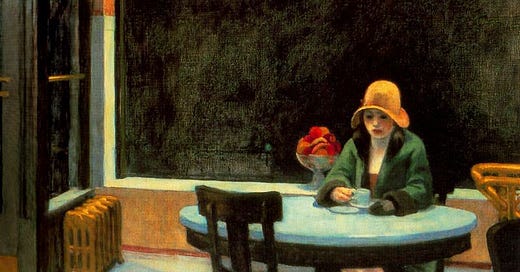It was 9 p.m. when the doctors called it. I was sent home.
The hospital corridors had drained me in every way. I walked in, dropped my bag, and headed straight to the kitchen. Someone had sent food. A traditional Indian egg curry with chapatis. I sat down and ate like I hadn't in years.
At the back of my mind, a voice questioned me. How could I eat when the inevitable had just unfolded?
But in that moment, I wasn't thinking. I was simply being. Something in me had collapsed. I was a child again, trying to make sense of the biggest loss of my life.
The curry, rich in hues of turmeric and chili powder, tasted like hers. The aromas were wisps of a mother's love. It had sat in the vessel waiting for this moment. Little did anyone know how historic this encounter would be in my life. For a moment, I smiled. Not with joy, but with something more fragile. Maybe shock. Maybe a memory too heavy to name.
That was the last time I ever ate egg curry. I haven't touched it since. Perhaps the unconscious decision to avoid it is not to view it as an ominous precipice but as a preservation of a thread between that moment and me.
Grief is strange. It creeps into rituals, foods, sounds, and scents. It can make the ordinary unbearable. Many years later, I read The Year of Magical Thinking. Through Didion's words, I began to understand my own. Like her, I found myself engaged in magical thinking—believing somehow that avoiding egg curry was keeping a portal open between worlds. As Didion struggled with giving away her husband's shoes (for how could he return without them?), I preserved that final meal as a sacred space. We had both found odd, tender ways to survive, creating private rituals that defied logic but sustained us.
It has been eighteen years.
My relationship with grief has changed. It no longer consumes. It lingers. It deepens. My mother, just 53, full of life, had to leave too soon. Her death broke something open in me. In trying to live with her absence, I began slowly piecing together who I was.
The loss pushed me to undertake a journey with grief. It brought tenderness and presence to the forefront of my life. It blessed me with emotional intimacy with everything I wanted to be tender to in life. It taught me not to take anything for granted.
The pain was real. But so was the clarity it eventually gave me.
Today, as I remember her, I feel her urging me forward. She asks me to be softer with myself, to embrace the parts I've long doubted, to stop chasing perfection. Once, while struggling with a decision to pursue a dream that seemed impractical, I felt her presence—not as a ghost, but as a certainty within me that taking the risk was exactly what she would have encouraged.
They say grief is love with nowhere to go. But mine has found a way. It moves through time and space, reshaping me gently. It has been a long time, but this awareness has not faded, and for that I am glad. It has become the quiet force that lets me grow, while keeping her close.
To those walking with grief:
"Grief is a sacred territory. It is a place that enlarges the soul and opens it to new territories of wisdom, depth, and compassion that, otherwise, we simply would not know."
— John O'Donohue
In the years since my mother's passing, I've come to understand grief not as something to overcome, but as something to move with. It becomes a companion that changes form but doesn't leave. Some days it's hardly noticeable, other days it catches you off guard in the spice aisle of a grocery store.
What I wish someone had told me then: there's no timeline, no correct way to grieve. The rituals you create even avoiding egg curry aren't strange at all. They're threads connecting you to what was lost. Every memory that brings tears is also proof of how deeply you loved.
The spaces that feel hollow now are being carved for something new, though it's impossible to see that in the beginning. Time doesn't heal all wounds, but it does teach us how to carry them. The weight becomes more familiar. Eventually, it transforms into something that gives more than it takes.
If grief has brought you here, know that you're not alone in this sacred territory. It changes us, yes. But sometimes, in ways we could never have imagined, it changes us for the better.
I couldn’t think of any other poem but to end this with one of my favourites :)
The Thing Is
by Ellen Bass
to love life, to love it even
when you have no stomach for it
and everything you’ve held dear
crumbles like burnt paper in your hands,
your throat filled with the silt of it.
When grief sits with you, its tropical heat
thickening the air, heavy as water
more fit for gills than lungs;
when grief weights you down like your own flesh
only more of it, an obesity of grief,
you think, How can a body withstand this?
Then you hold life like a face
between your palms, a plain face,
no charming smile, no violet eyes,
and you say, yes, I will take you
I will love you, again.A memory from the happier times with Shiela (my mom). As I age, I am glad that I have inherited this childlike enthusiasm from her :).
"Does anyone ever realise life while they live it? Every, every minute?"
— Thornton Wilder, "Our Town"






🤗